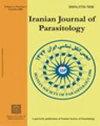Development of Low-Serum Culture Media for the in Vitro Cultivation of Theileria annulata S15 Cell Line
IF 0.9
4区 医学
Q4 PARASITOLOGY
引用次数: 0
Abstract
Background: The production of bovine theileriosis vaccine involves in vitro cultivation of Theileria annulata schizont-infected cell lines. Fetal bovine serum (FBS) is commonly used in animal cell culture, including the Theileria cell line. However, we aimed to reduce the amount of serum needed for cell culture by modifying the Stoker culture medium with supplements such as excretion factor and serum substitutes. Methods: To evaluate the effectiveness of these modifications, techniques such as cell counting, cell viability assays, and genomic analysis were employed in the Parasitic Vaccines Production Department of Razi institute of Iran, from 2020 to 2022. Statistical analysis was used to compare the results of different experimental conditions. Results: The three experimental media were as effective as the commonly used 10% Stoker medium in supporting the growth and viability of cells. Conclusion: The significant reduction in the required amount of serum and the remarkable cell growth achieved by using defined serum replacements for the production of cell culture media is a significant step towards the preparation of a proper cell culture medium for the production of bovine Theileriosis vaccine.开发用于体外培养环状毛癣菌 S15 细胞系的低血清培养基
背景:牛细小病毒病疫苗的生产涉及环状细小病毒裂殖体感染细胞系的体外培养。胎牛血清(FBS)通常用于动物细胞培养,包括牛圆线虫细胞系。然而,我们的目标是通过使用排泄因子和血清替代品等添加剂改良斯托克培养基,以减少细胞培养所需的血清量。 方法为了评估这些改良措施的效果,我们在 2020 年至 2022 年期间在伊朗拉齐研究所寄生虫疫苗生产部采用了细胞计数、细胞活力测定和基因组分析等技术。 统计分析用于比较不同实验条件下的结果。 结果:三种实验培养基在支持细胞生长和存活方面与常用的 10%斯托克培养基一样有效。结论使用确定的血清替代品来生产细胞培养基,可大幅减少血清的需求量,并实现显著的细胞生长,这是为生产牛细小病毒病疫苗制备合适的细胞培养基迈出的重要一步。
本文章由计算机程序翻译,如有差异,请以英文原文为准。
求助全文
约1分钟内获得全文
求助全文
来源期刊

Iranian Journal of Parasitology
PARASITOLOGY-
CiteScore
1.80
自引率
0.00%
发文量
55
审稿时长
6-12 weeks
期刊介绍:
Iranian Journal of Parasitology (IJP) is the official publication of Iranian Society of Parasitology (ISP) launched in 2006. The society was inaugurated in 1994 and pursues the improvement of the knowledge on the parasites and parasitic diseases, exchange of scientific knowledge with foreign societies, publicity activities, and consultation on the parasitic diseases, and intimate relationship among society members.
The main aims of the Journal are: contribution to the field of Parasitology, including all aspects of parasites and parasitic diseases (medical and veterinary) and related fields such as Entomology which may be submitted by scientists from Iran and all over the world.
 求助内容:
求助内容: 应助结果提醒方式:
应助结果提醒方式:


